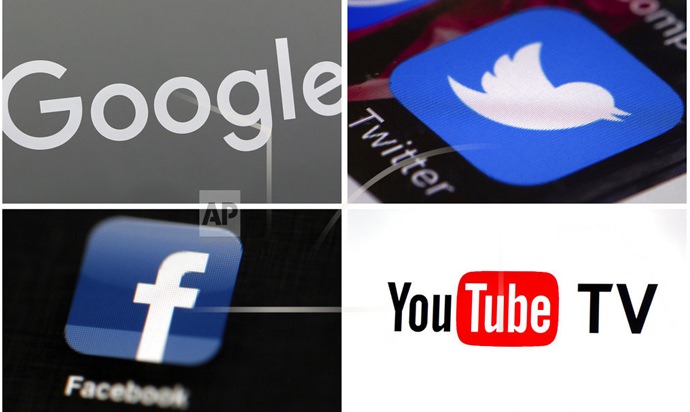
New York (AP) – Lawmakers grilled executives from Facebook, Google’s YouTube and Twitter on Wednesday about what the companies are doing to prevent terrorists from using their platforms to spread propaganda and recruit new followers.
 The Senate’s commerce, science and transportation committee hearing comes amid growing government scrutiny over misuse of social media platforms and questions about what the companies are doing to prevent it.
The Senate’s commerce, science and transportation committee hearing comes amid growing government scrutiny over misuse of social media platforms and questions about what the companies are doing to prevent it.
And it comes after November’s exhaustive congressional hearings on what the companies knew – and did – about Russia’s efforts to meddle with the 2016 U.S. elections using their platforms.
Lawmakers acknowledged that the companies, especially Google and Facebook, have come a long way when it comes to weeding out extremist material. But they said more needs to be done.
“What have we learned about how the Russians attacked us?” Senator Bill Nelson, a Florida Democrat, asked the witnesses. “What have social media companies done to assess this threat, both individually and collectively? What have they done to address this threat? And what more do they need to do to be ready for the future?”
All three companies stressed their increasing reliance on automated systems and artificial intelligence to combat terrorism on their platforms. Facebook, for example, said 99 percent of extremist material related to Al Qaeda and the Islamic State is detected and removed before anyone manually reports it.
But lawmakers and others noted that artificial intelligence is only good at detecting and preventing things it already knows. So AI won’t help much when it comes to anticipating future social-media tactics that extremists might adopt.
Clint Watts, a terrorism expert at the Foreign Policy Research Institute, said at the hearing that Google and Facebook are ahead of Twitter when it comes to weeding out extremist content. He said that’s because Twitter relies too much on technology and not enough on things like threat intelligence, like working with outside experts and officials.
He also said that “lesser educated” populations, including people around the world just getting online via mobile devices, are especially vulnerable to the social media manipulations of terrorists and authoritarians.





